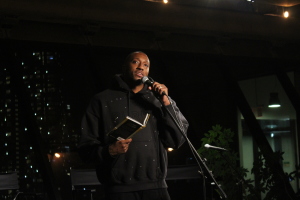God, Georgia Tech, and Going Legal: A Reflection on My First Amendment Lawsuit Nine Years Later
Over the past nine years, we have seen notable progress in the quest to advance religious liberty, even as America's first freedom remains under assault in every arena of society. In 2006, when Orit and I filed our lawsuit, there was very little awareness of these challenges in the general public, social media was not really used as a tool to counter the mainstream media, and most pastors and legislators alike virtually ignored these issues. Today we see a growing recognition of the need to protect our First Amendment rights at the state and federal level, and we have increasing tools with which to disseminate our message.
Yet we also see increasing threats to religious freedom from coast to coast. Barronelle Stutzman, the lovable grandmother and long-time florist of Arlene's Flowers, is locked in an intense legal battle with the State of Washington and the ACLU after politely declining to create floral arrangements for a same-sex wedding. Even though Stutzman employed gay individuals in her flower shop and the request she declined was from a decade-long friend and customer (whom she graciously referred to several other local florists), the tolerance tyrants have made her a target of their venom; the media is painting her as a hateful bigot who "refused to serve" others, and the government is holding her personally responsible in the case, putting everything she has worked for at risk.
In my hometown of Atlanta, Fire Chief Kelvin Cochran was recently fired by Mayor Kasim Reed because of his Christian faith and beliefs, after activists complained to the City Council about a men's devotional book Cochran had written on his personal time in which he briefly affirmed a biblical view of sexual morality. "This sends a strong message to employees about how much we value diversity and how we adhere to a non-discriminatory environment," said Atlanta City Councilmember Alex Wan of Cochran's termination, with the irony lost on many. It is important to note that President Barack Obama previously appointed Chief Cochran to the highest fire position in U.S. in 2009, that Mayor Reed "begged" Cochran to return to Atlanta in 2010 (Reed's words), and that Cochran received the "Fire Chief of the Year" distinction in 2012. But none of that seems to matter to the tolerance tyrants now. In an extravagant display of double standards, The New York Times editorial board stated, "It should not matter that the investigation found no evidence that Mr. Cochran had mistreated gays or lesbians. His position as a high-level public servant makes his remarks especially problematic, and requires that he be held to a different standard."
And while great strides have been made to advance academic freedom on college campuses, we still see Christian groups being targeted for the "offense" of requiring that their leadership be Christian and adhere to biblical standards of personal morality. At Vanderbilt University, over a dozen campus religious communities have lost their organizational status, groups that together consist of over 1,000 evangelical, Catholic, and Mormon students. "The line between good and evil was drawn by two issues: creedal belief and sexual expression. If religious groups required set truths or limited sexual autonomy, they were bad—not just wrong but evil, narrow-minded, and too dangerous to be tolerated on campus," wrote Tish Harrison-Warren in an impactful reflection titled "The Wrong Kind of Christian" for Christianity Today. "Increasingly, orthodox beliefs and practices are forbidden as those in power forfeit a robust understanding of religious pluralism."
A similar situation is facing Christians at Bowdoin College in Maine, and I recently had the privilege of meeting Robert and Sim-Kuen Chan Gregory who served as volunteer advisors to InterVarsity's Bowdoin Christian Fellowship but were essentially kicked off campus by the administration under Bowdoin's so-called "all-comers" policy. "Were the Bowdoin Christian Fellowship to agree to the College policy of non-discernment, it would forfeit the means of forming, holding, and making public the Christian beliefs it was trying to preserve," lamented Mr. Gregory in a powerful report titled, "Bowdoin Told Us To Go" for First Things. "In a word, one cannot both affirm the non-discrimination policy of the College which rejects doctrinal statements, and then plead for the College to give the freedom to require leaders to affirm in behavior and belief the doctrinal statement so rejected."
In all of these current cases, we still witness opposition that is unrestrained in their attacks on those who dare to challenge the status quo and seek accountability or simply live according to their deeply held religious beliefs. We still see a media that further perpetuates a double standard and is intent on portraying Christians as intolerant bullies imposing their antiquated views on society. And while the individuals in these cases demonstrate extraordinary fortitude, sadly we still encounter far too many believers who cower in the face of even the slightest cultural controversy and hide behind the utopian idea that all you need is love.
Earlier this month we celebrated the festival of Purim, a holiday commemorating the deliverance of the Jewish people in the Persian Empire as recorded in Book of Esther. The story of Queen Esther is one of courage in the face of grave uncertainty, boldness in the face of intimidating authority, and resolve in the face of tremendous personal risk. It is a story God used to guide my own actions, when I was struggling about whether to take this step and "go legal" as a 21-year-old college student.
While the actions Orit Sklar and I took to hold our school accountable and expand the rights of all students on campus are obviously miniscule compared to Esther's actions to save her people, I believe there is lesson in her story for all of us, no matter what our stage in life or circle of influence.
For a small business owner, courage may mean turning down business that would cause you to compromise your convictions, even though you'll be portrayed as unwilling to serve and risk untold scrutiny in the public eye. For a campus ministry, boldness may mean finding new and creative ways to reach students with the love and truth of the Gospel, even though you are no longer officially recognized as a campus group. For a student, resolve may mean raising your hand in class and respectfully challenging your professor… or even filing a lawsuit against your school.
While the outcome is not guaranteed in a court of law or in the court of public opinion, you can take confidence that your efforts are not in vain; your obedience will be rewarded, and you are ultimately accountable to an audience of One. And who knows, maybe He has placed you in your position for such a time as this?



























